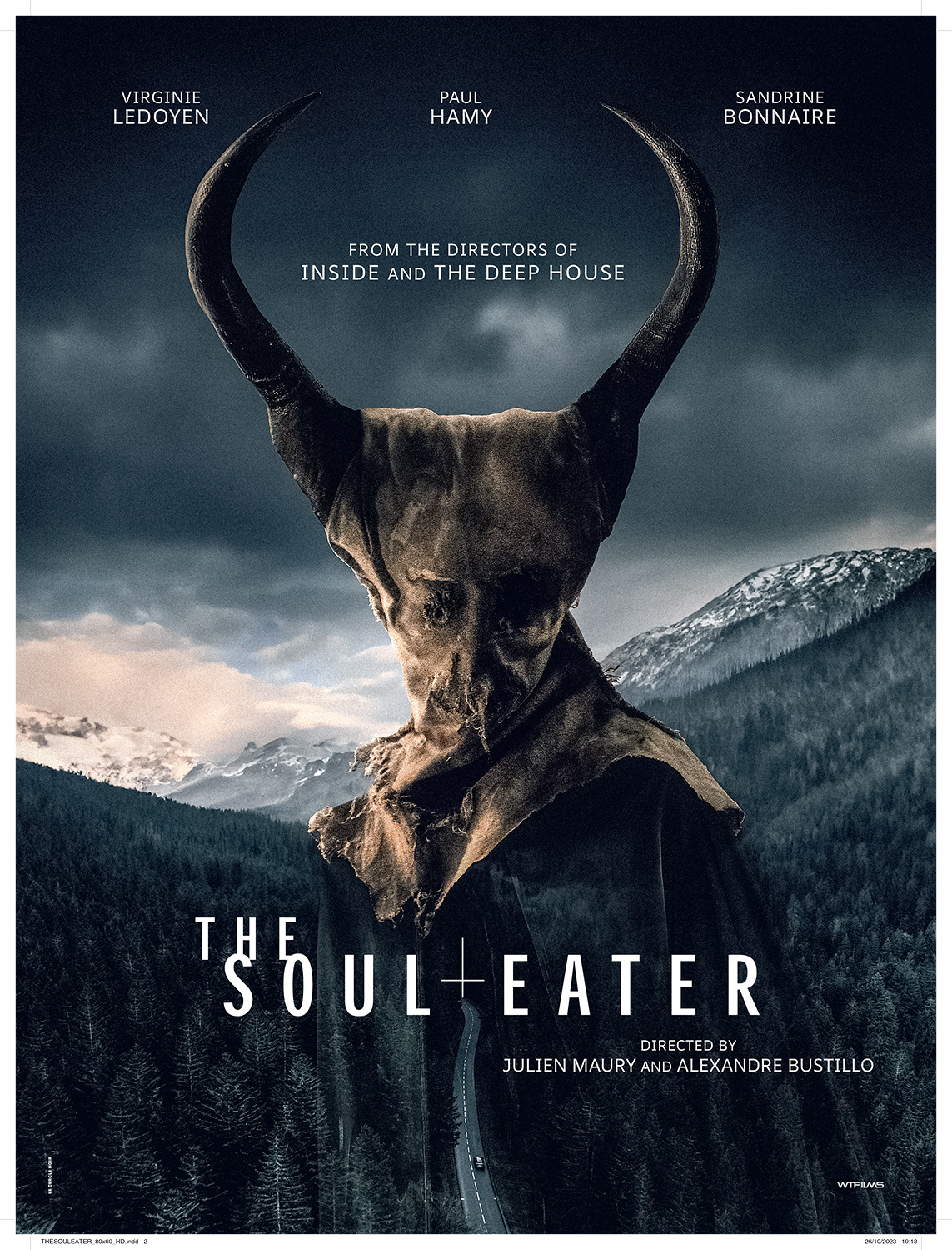

The harming of children is justifiably seen as one of the worst possible crimes someone can commit. It reaches inside of us to a very base level and twists some primal thing in us to evoke an urge to protect the most vulnerable amongst us. Julien Maury and Alexandre Bustillo’s latest effort The Soul Eater is a deep dark dive into a small town haunted by a spat of violent deaths, a local legend that may be more than mere folklore, and missing children.

Virginie Ledoyen stars as police commander Guardino, assigned to investigate a violent double murder in small French mountain town, and arriving at the same is Franck de Rolan (Paul Hamy) a member of the French Gendarmerie also assigned to investigate the murders and disappearances. Working together, they soon uncover an unsettling connection between the victims and the missing children, as well as evidence that the local legend of the Soul Eater may be more than just a story to scare children.

The Soul Eater feels like some wonderful combination of David Lynch and True Detective, a police procedural that constantly threatens to embrace the supernatural. It’s got all the pessimistic fixings of the latter with the dark neo noir touches of something like Fire Walk With Me. This is not a small town filled with kitschy quirks rocked by a Bad Thing; rather, this is a small town awash in Bad Things that, like a decayed corpse, is falling apart at the seams with this recent foray into debauchery. Roquenoir, the town in question, feels almost like the antagonist of the film, a gray and washed-out monster itself seeming to consume characters into its yawning rotting buildings. It has all the feelings of a fairy tale gone horribly wrong, a town that in the process of being left behind curdled into something awful.

It’s a deeply, deeply pessimistic film that despite having a satisfying resolution where justice is (sort of) doled out still leaves the viewer feeling unsure that anything of meaning was done regarding the evils the film postulates. There is no happily ever after here; instead, you can almost see the counseling and therapy sessions the survivors are going to have to endure in the aftermath of whatever it was they were dealing with. The children in this movie are unfortunately probably never going to be at peace ever again, and while the filmmakers are tactful enough to not show too much regarding what happened to these kids (relying more on what the children themselves are driven to afterwards instead), they aren’t subtle at all about what the future holds for them in the realm of mental health.

There are no real ‘boo! Gotcha!’ moments in The Soul Eater. Instead, it draws much of its horror from the depths within humanity that a thankfully small number of people allow themselves to sink to and the resulting damage they inflict on the world. It’s not a film that will shock you, but rather a film that will stick with you and creep into your thoughts days after you see it. It’s an effectively bleak treatise on the ultimately futile effort to undo the unspeakable; rather than undo what’s been done, The Soul Eater postulates that sometimes our best course of action is to simply co-exist with the devastation left in its wake.



